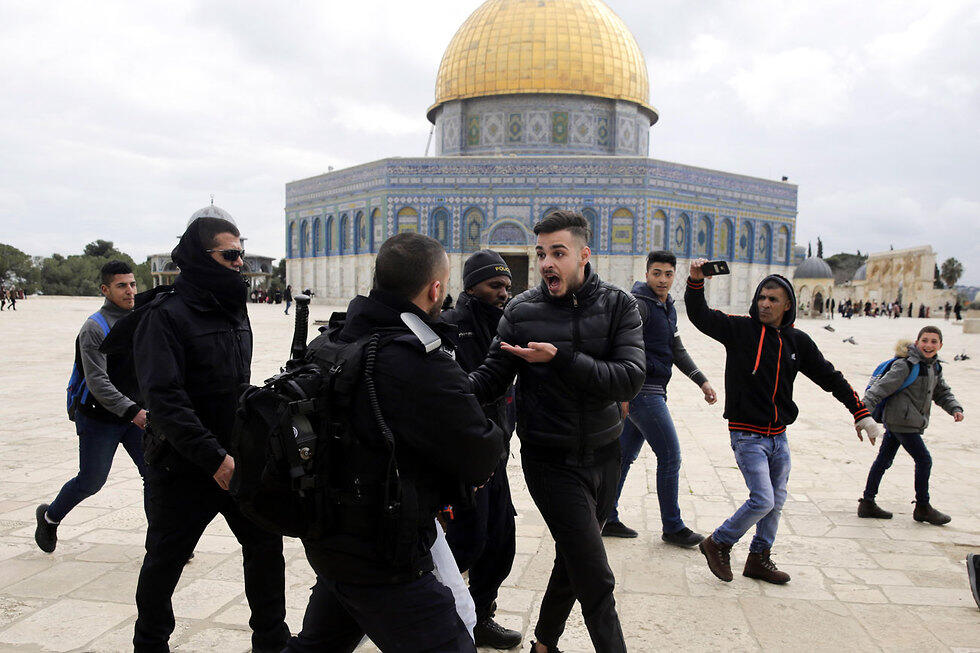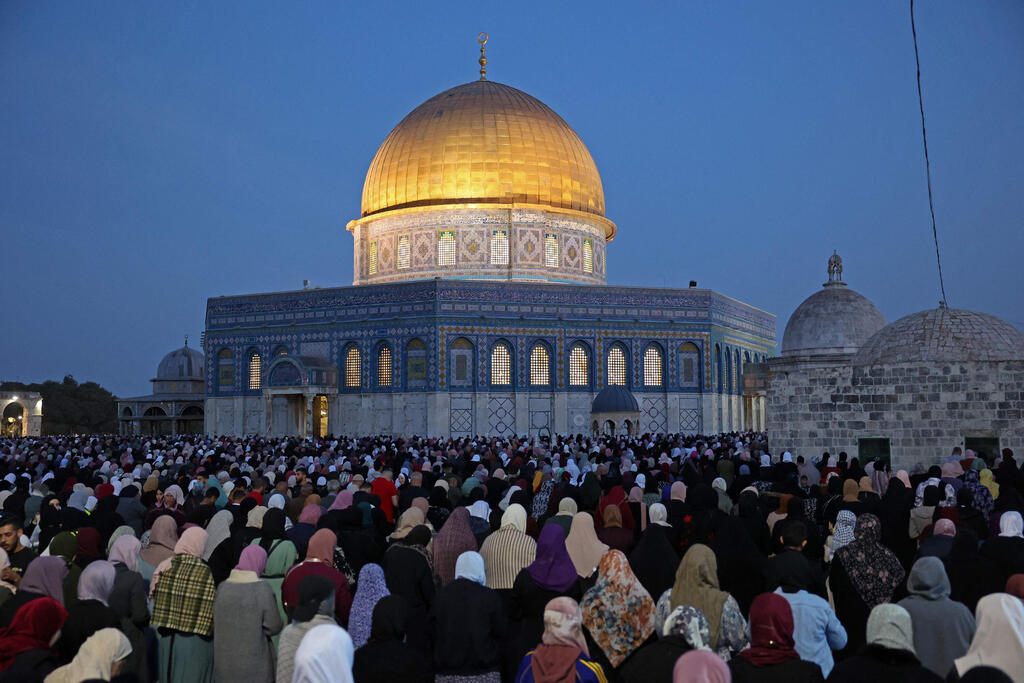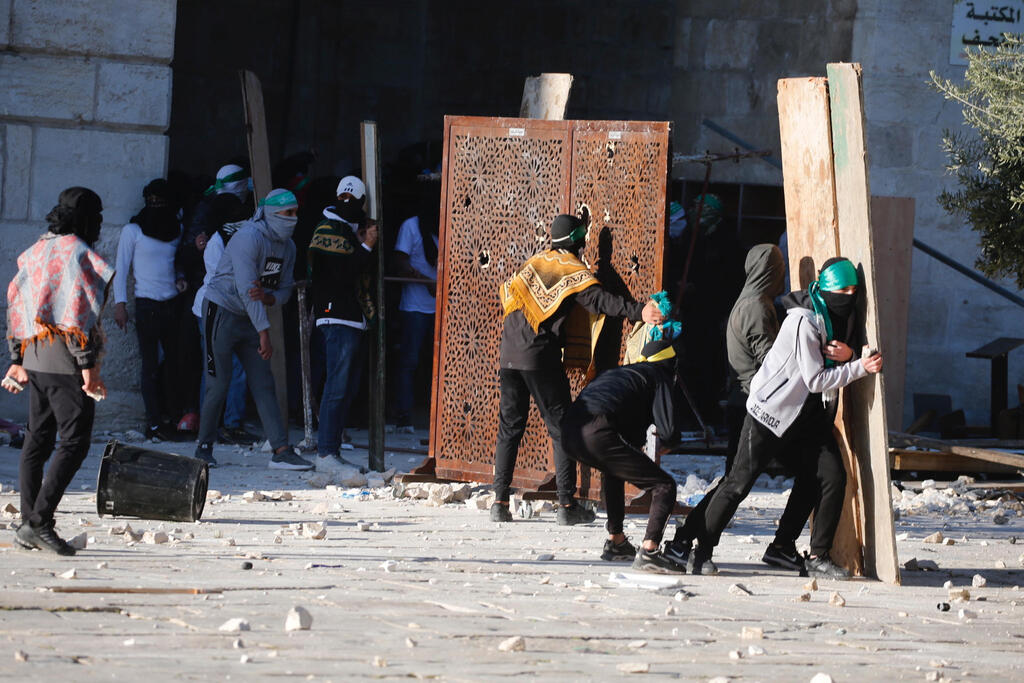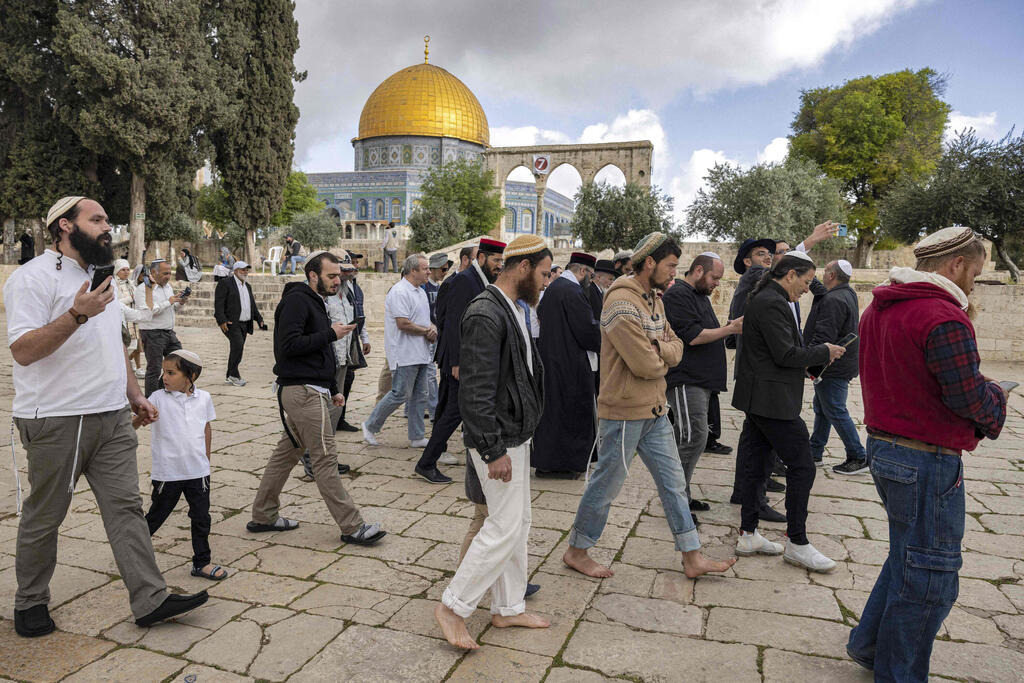Getting your Trinity Audio player ready...
Jordan has ramped up its efforts to push Israel to respect a "historic" status quo at Jerusalem's al-Aqsa Mosque compound and avoid violent clashes between faithful and security forces that could spill over to a wider conflict.
Last week, Jordan had notified Washington it was ready to discuss the issue with Israel after the end of the holy month of Ramadan. Amman's aim would be to draw up steps that Israel should take to roll back the conditions around the mosque to what they supposedly were 22 years ago.
Riots at the al-Aqsa Mosque compound
Jordan has accused Israel of gradually encroaching on the status quo around worship at the shrine since 2000.
Clashes between Palestinians and Israeli police at the compound over the past few weeks have stoked Arab anger and international concern about a backslide to a last year's 11-day war in Gaza.
Jordan, whose ruling Hashemite Dynasty holds custodianship over Muslim and Christian sites on and around Jerusalem's Temple Mount, claimed that since 2000, Israel has undermined a centuries-old tradition under which non-Muslims are banned from praying at the compound.
4 View gallery


Riots at the Temple Mount in response to the Waqf trying to seal off the compound
(Photo: AP)
Amman told Washington that Israel should end restrictions on staffing of Jordan's Waqf which administers the site and let it manage and monitor all non-Muslim visitors, according to sources.
Israel denies such allegations and says it is enforcing a long-standing ban on Jewish prayer at the compound.
Jordan says Israel is restricting access for Muslim worshippers and fails to restrain Israeli far-right nationalists whose rituals violate the status quo ante and, from an Islamic point of view, desecrate the holy site.
4 View gallery


Tens of thousands of faithful gather outside al-Aqsa Mosque for Qadr Night
(Photo: AFP)
In the document tabled to Washington, Amman largely ignores a plethora of breaches of the previous state of affairs on the Muslim side, such as holding violent political protests at the holy site, incitement and flag-waving.
Amman's hop into the diplomatic fray aims to "deal with the root causes of the tension and ensure that matters don't explode again," said a Jordanian official who requested to remain anonymous, adding that Washington had recently been given a paper that "clearly" stated the kingdom's position.
Below is a rundown of the conditions deduced from Jordan's efforts to restore the status quo on the Temple Mount, and how Israel should respond to them:
- Jordan demands that Jewish visitors ascending the Temple Mount be closely monitored and only allowed in small groups. However, Israel must demand that Jewish visitors be allowed to enter the site through all nine entrance gates, rather than only one.
- Israel must demand that the Waqf will be in charge of quelling unrest at the holy site or allow Israeli police to step in if they fail to do so.
- Israel must demand the construction of a tall gate or installation of a net that would prevent projectiles from being thrown from the Temple Mount onto the Western Wall. If this condition is met, Israeli police will have no reason to enter the compound.
- Israel must demand access to the el-Mahkama tower for riot control purposes.
- Jordan and the Waqf must clear out all waste, rocks, and construction materials used by rioters to attack security forces during clashes.
- Israel must demand the Waqf allow access to tourists to the Dome of the Rock, the Islamic Museum, and the Al-Aqsa Mosque, scheduled in advance.
- Israel must demand oversight over inflammatory sermons blaring from the mosque's overhead sound system and the option to turn them off if need be.
- Finally, the two parties must agree on the installation of advanced surveillance cameras around the compound's gates, and the establishment of a joint command room for Israeli police and the Waqf.
4 View gallery


Palestinian rioters hurl stones at police forces outside the al-Aqsa Mosque in Jerusalem during clashes last month
(Photo: EPA)
In order to restore the status quo in the Temple Mount, both Israel and Jordan must make reforms and attempt to see eye to eye. Most importantly, Israel, Jordan, and the Palestinian Authority have to establish a consistent communication forum that will act in coordination amid tensions.
On Friday, Israel banned non-Muslim from visiting the site until the end of Ramadan. This was a "good step to respecting the status quo and easing tensions and restoring calm," said Jordan's Foreign Minister Ayman Safadi.





